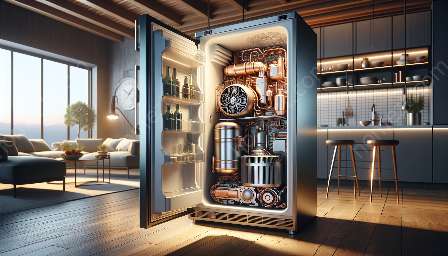Refrigerator compressors play a crucial role in the functionality of refrigerators, maintaining the cool temperature required for food preservation. Understanding how these compressors work can help you make informed decisions about selecting, maintaining, and repairing your refrigerator. This comprehensive guide will delve into the intricacies of refrigerator compressors, their types, functions, and maintenance, providing you with insights to effectively manage your cooling appliance.
The Basics of Refrigerator Compressors
A refrigerator compressor is the heart of the cooling system, responsible for compressing the refrigerant gas to facilitate heat exchange and maintain low temperatures inside the appliance. The compressor works in conjunction with other components such as condensers, evaporators, and expansion valves to ensure efficient cooling. Most refrigerators use either a standard electric compressor or an inverter compressor, each with its unique characteristics and benefits.
Types of Refrigerator Compressors
Standard Electric Compressors: These compressors operate on a fixed speed and are commonly found in traditional refrigerators. They are reliable and cost-effective but may consume more energy due to continuous operation, especially in extreme temperature variations.
Inverter Compressors: Inverter compressors use variable speed technology, adjusting the compressor's speed based on the cooling demand. This results in energy savings and quieter operation, making them ideal for modern energy-efficient refrigerators.
How Refrigerator Compressors Work
When the refrigerator's temperature rises above the set level, the thermostat triggers the compressor to start. The compressor draws in the refrigerant gas, compresses it, and circulates the high-pressure gas to the condenser, where it releases its heat, facilitating the conversion of the gas to liquid. The liquid refrigerant then moves to the evaporator, where it absorbs heat from the interior of the refrigerator, cooling the air and items inside. Once the cooling cycle is complete, the refrigerant returns to the compressor to continue the process.
Maintenance and Care
To ensure optimal performance and longevity of your refrigerator compressor, regular maintenance is essential. Keeping the condenser coils clean, ensuring proper ventilation around the appliance, and avoiding overloading the refrigerator are key practices. Additionally, being mindful of temperature settings and promptly addressing any unusual noises or performance issues can prevent compressor failures and costly repairs.
Choosing the Right Refrigerator Compressor
When purchasing a new refrigerator or considering a replacement compressor, understanding your cooling needs, energy efficiency preferences, and noise tolerance can guide your decision-making. Evaluating the compressor type, capacity, and warranty can help you select a refrigerator with a reliable and efficient compressor suited to your requirements.
Conclusion
Refrigerator compressors are vital components that significantly impact the performance and energy efficiency of refrigerators. By familiarizing yourself with the inner workings of these compressors and adopting proper maintenance practices, you can optimize the functionality of your refrigerator and prolong its lifespan while minimizing energy consumption. With this understanding, you can make informed choices when selecting, maintaining, or repairing your refrigerator, ensuring a reliable and efficient cooling solution for your home.





















